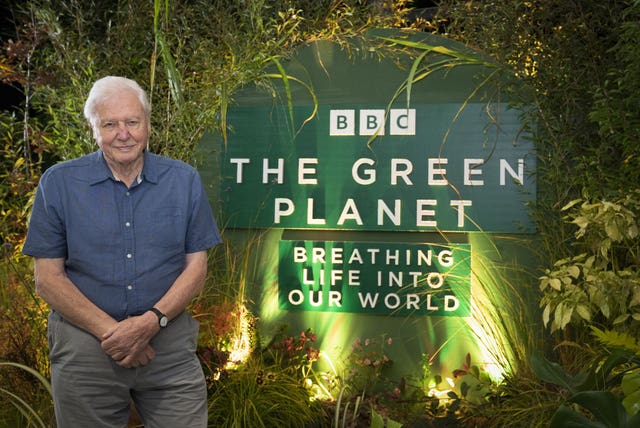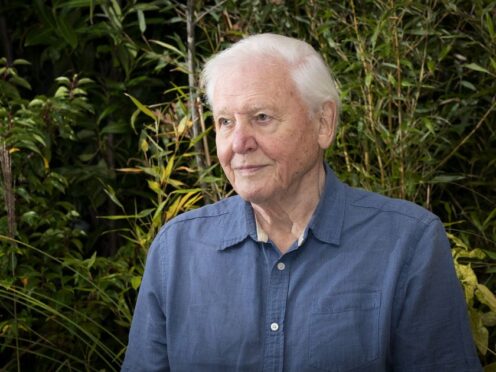Sir David Attenborough has hailed the “revolution” in global attitudes towards plants and says there has been an “awakening” to the importance of the natural world.
The veteran broadcaster said people had become “plant conscious” ahead of the release of his latest BBC One documentary The Green Planet.
Speaking to the One Show about the series, the 95-year-old naturalist said: “The world has certainly become plant conscious.”
We can't wait for #TheGreenPlanet this Sunday! 🌍
Here's a One Show Exclusive with Sir David Attenborough.
Stream on @BBCiPlayer 👉 https://t.co/E216i5HDnl#TheOneShow pic.twitter.com/iwxooGplXI
— BBC The One Show (@BBCTheOneShow) January 5, 2022
“There has been a revolution in world wide attitudes to the natural world in my lifetime, an awakening and awareness of how important the natural world is to us.
“An awareness that we would starve without plants and we literally wouldn’t be able to breathe without plants.
“The world is green… and yet people’s understanding about plants has not kept up with that and I think this (series) will bring it home.”
It was recently revealed that Sir David was stabbed by a cactus with needles like glass while filming the series in California.
Despite wearing heavy protective gear, including a Kevlar under-glove and a welding glove, he was hurt by “spicules of glass” while reaching inside the dangerous Cholla plant.
The new documentary from the BBC’s Natural History Unit uses ground-breaking filming techniques to show viewers the intricate lives of plants and the ecosystems that flourish around them – and the ways in which they are just as aggressive as animals.
It comes 26 years after Sir David’s The Private Life Of Plants aired on BBC One in 1995.
Comparing the programmes he said: “The thing that really is new is that, whereas in Private Life Of Plants, you were stuck with all this very heavy primitive equipment in one place… we can now take it anywhere.”

In a clip from the show, he is shown to be operating a piece of high-tech equipment with a device that looks like a games console controller.
“With slight trepidation, they hand me the controls,” he is heard to say on a voiceover.
Laughing, he adds: “I think I better hand it over to the experts.”
Sir David said that the new technology used in the series allowed them to see plants in ways “we’ve never seen before”, which to him has a “hypnotic appeal”.
The Green Planet will see Sir David travel across the globe, from the US to Costa Rica and across Europe to different terrains including deserts, water worlds, tropical forests and the frozen north.
In November, the series had its global premiere in Glasgow in conjunction with the Cop26 summit on tackling climate change.
The series begins on BBC One on January 9.
